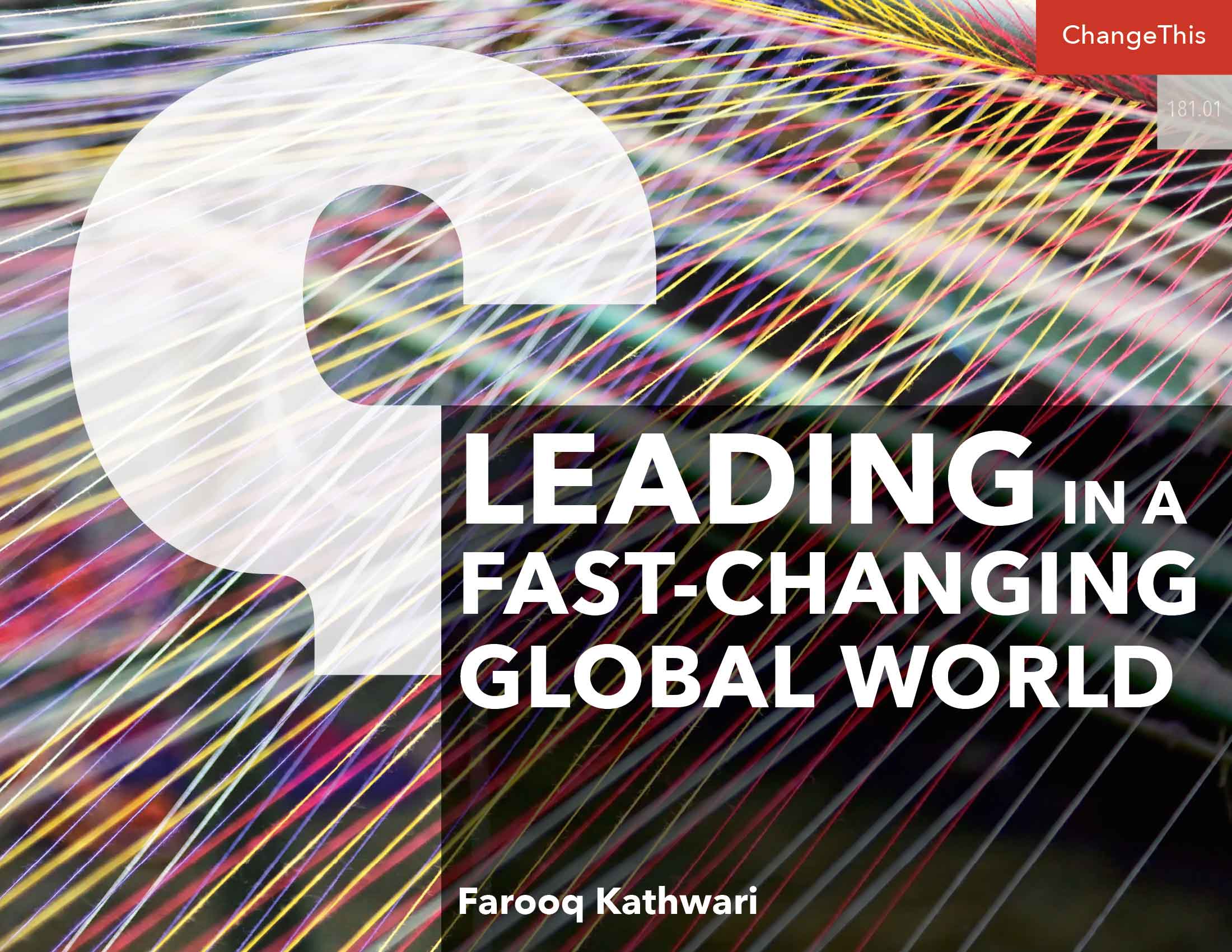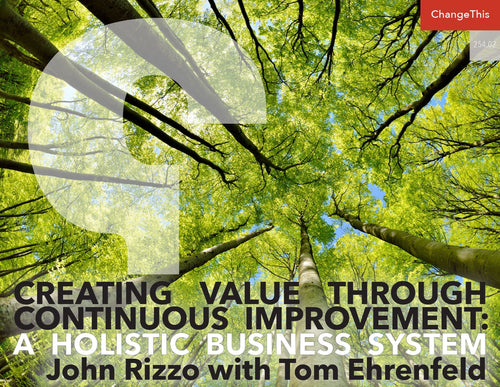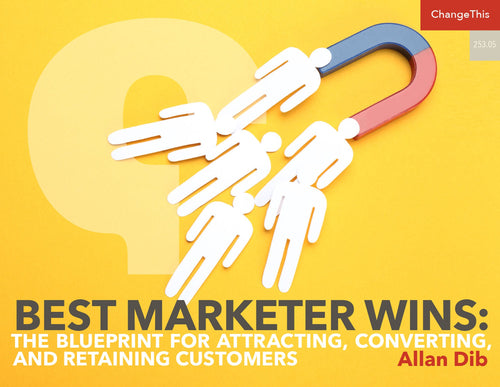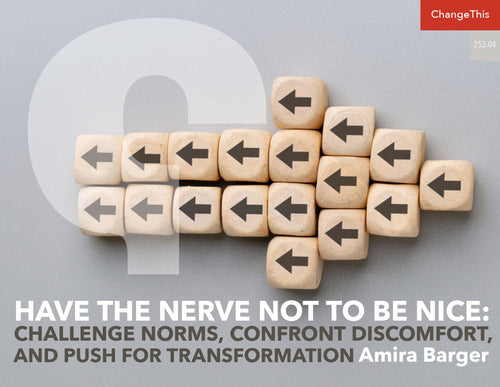Leading in a Fast-Changing Global World
Today’s leaders face all the problems leaders have always faced—demanding customers, fierce competition, and economic uncertainty. They’re being called upon to lead in a world that is rapidly changing, and one of the biggest dimensions of that change has to do with diversity.
As global markets grow in importance, and as the US itself becomes more diverse, leaders must master the challenge of guiding a multicultural world.
I’ve been grappling with this challenge for decades, both inside and outside business. When I arrived in the United States, I faced the challenge of learning and adapting to a very different culture than the one I grew up with in my native Kashmir. Life in a great metropolis like New York was all new to me.
For instance, one of the first things I did in New York was ride the subway with my father. The very idea made me quite nervous: When I heard we were going to go underground, my first reaction was, “How will we breathe?” The first couple of times I went down into the tunnel, I actually felt I had some trouble breathing. I realize now that was purely psychological. I quickly got used to the experience, and soon I was traveling all over the city by subway just like millions of other New Yorkers.
Another hurdle I had to overcome was figuring out what to order in restaurants. I went into a Horn & Hardart Automat, asked for a cup of tea, and was baffled to be given a cup of hot water and a curious-looking white bag. I started to tear the tea bag open to release the tea leaves inside, when a man sitting nearby stopped me. “No,” he said, “don’t open the tea bag—just drop it in the hot water, and you’ll soon have a cup of tea.”
I thanked him and followed his advice. But then I spotted a little paper packet of sugar on the table. Ah, I know what to do! I thought, and I dropped the whole packet into the teacup.
“No, no!” my new friend explained, “You tear open the pack and pour out the sugar!” I was thoroughly confused.
On the whole, however, my transition to American life was an easy one. Walking the streets of the city, riding the subway, or sitting in my classes at NYU, I saw that Americans were ordinary people much like the ones I’d known at home. They’re no different from me, I thought, and I immediately decided I would have no trouble living and working with them.
Perhaps the most striking and delightful thing I discovered about America was the sense of freedom it gave me. Having come from the disputed and strife-torn region of Kashmir, where people had to be very careful about what they said and did, I was amazed to realize that people in America really are free. No one asks to see your papers. There’s no “lights out” curfew at night. You don’t have to worry that the authorities will come to your home to arrest you because of your political opinions or activities. This is a wonderful fact of life in America that we too often take for granted.
Once I launched my career in America, I had to gain the acceptance and trust of people who might never have met—let alone worked with—a person from my corner of the globe. This was a particular challenge when I was asked not just to lead but also to transform Ethan Allen—an iconic American company with deep roots in some of the country’s most traditional communities, from the historic towns of New England and the rural communities of Appalachia to the valleys of California and the prairies of Texas.
“As global markets grow in importance, and as the US itself becomes more diverse, leaders must master the challenge of guiding a multicultural world.”
Thankfully, my colleagues at Ethan Allen proved to be as open-minded and welcoming as most Americans. They have worked with me for three decades to grow our business in a time of challenging economic, social, and technological upheavals. I believe that our continued success in a world where so many established companies have faltered is a tribute to the remarkable leadership skills found at every level in our organization, from the board of directors to our designers and craftspeople.
Over the years, I developed a list of key leadership principles that underlie my personal success. They’ve also been accepted and implemented by many of the people of Ethan Allen. I’d like to focus on a few of them that may be especially helpful to leaders who are grappling with the challenge of leading in a global world.
One of these principles is age old, and it’s quite simple: “Lead by example.” Let me illustrate what that means to me with a couple of examples.
With the terror attacks of September 11, 2001, global conflict hit the US mainland more directly and painfully than ever before. I thought it was my duty as a leader of the business community to help shape a humane American response, and my colleagues at Ethan Allen agreed. Among others things, we published a full-page ad in The New York Times and Washington Post mourning the tragedy and urging national unity and a renewed commitment to the “American values of tolerance, courage, wisdom, and justice.”
Soon thereafter, I had the opportunity to meet with President George W. Bush and his chief political advisor, Karl Rove. In the wake of the attack, I’m proud that President Bush and the overwhelming majority of other national leaders resisted any temptation to scapegoat Muslims like me, instead setting a tone of compassion.
I also spoke up about the international repercussions of the new War on Terror. In 2002, as a board member of the Georgetown Institute for the Study of Diplomacy, I attended a discussion led by John D. Podesta, a former Senate staffer, chief of staff in the Clinton White House, and later an advisor to President Obama, about defense issues in this new era. The session took place against the backdrop of a raging debate about the possibility that the US might go to war against Iraq.
I asked about the “unintended consequences” that often arise from such military decisions, particularly those made in haste. “This is something that leaders at the highest levels of government don’t study enough,” Podesta admitted.
“Perhaps we should,” I suggested. I recommended that the institute sponsor a study of possible unintended consequences of an expanded US military presence in the Middle East and South Asia. The idea was accepted, and the report, written by Institute staffer Paul G. Frost, was issued in the spring of 2003 on the very eve of the ill-fated US invasion of Iraq. It warned of many of the disruptions that could occur if the US were to invade a primarily Muslim country, making the dangers posed by unrest in the Middle East even worse. Sadly, a number of the predictions in the report proved to be prescient.
Many business leaders focus solely on their roles within the organization. But in today’s complicated world, all of us have a responsibility to be leaders as citizens—of our communities, our nations, and the world. Today’s best corporate leaders are also contributing to making the world a better place, which can only create additional benefits for their companies as well.
A second key leadership principle focuses on change: “Understand that change means opportunity—don’t be afraid of it.”
Today, the furniture business—like most industries—faces dramatic challenges as commoditization and globalization sweep the world. My mission at Ethan Allen has been to try to define and lead our response, and these efforts have taught me some principles about managing change. One is the importance of preparing people for change. Fear, doubt, and resistance can be minimized when the leader lays a conceptual foundation before launching the change effort. Educate your team members in the ways the business environment is evolving; help them understand the new competitive challenges and the new demands that customers are presenting; and then show them, step by step, how the changes you propose will strengthen the organization for a better future.
The best way to do this is face to face, person to person—which explains the town hall meetings we convened around the country and the program by which we brought more than five thousand factory associates, together with their management, to our headquarters in Danbury. Efforts like these help people understand “what’s in it for them” and make it easier for them to embrace change rather than shunning it.
“In today’s complicated world, all of us have a responsibility to be leaders as citizens—of our communities, our nations, and the world.”
The leader who wants to encourage continual change, growth, and renewal must also accept the necessity of experimentation—and the inevitability of mistakes. Resist the temptation to launch a witch-hunt or to point fingers after a failure and instead learn from your mistakes. The leader who behaves in a judgmental, condemnatory fashion when an initiative falters guarantees only that his team members will shy away from trying new things in the future—and that’s a path that leads to stagnation.
Finally, there’s a leadership principle that focuses on a subject that often goes unmentioned in business conversations—justice. The principle is an important one: “Make decisions fairly. Justice builds trust, motivation, and teamwork.”
Leading justly is perhaps the hardest thing an executive is called upon to do. It requires a willingness to lose when an underlying moral principle is more important than winning. It requires being open to disciplined, respectful conflict; the readiness to change direction when you realize you are wrong, and the courage to stand firm when you are right; and the ability to say no even to a valued customer or colleague when you’re asked to take a step that your conscience will not permit.
Justice also requires tackling global challenges through the lens of social conscience. I devote time to working with the Kashmir Study Group, Refugees International, and similar groups in support of efforts to promote world peace, freedom, and fair treatment of all people. The same commitment underlay my participation in a Congressionally mandated Task Force on Extremism in Fragile States. Co-chaired by former Governor Thomas Kean and former Congressman Lee Hamilton, the task force developed expert recommendations for US policies to help fragile states in Africa and the Middle East avoid the dangers of political extremism. Interestingly, the task force used a version of the five important leadership areas that I ask Ethan Allen managers to focus on—talent development, marketing, service, technology, and social responsibility—as discussion points in analyzing the challenges faced by governments of fragile states. This reinforces one of the big takeaways from my life and work—namely, that the same basic principles of leadership apply in every area of activity, including business, government, nonprofit management, and civic engagement.
The leadership of Ethan Allen is also committed to applying the principles of justice to our business decisions, particularly in regard to the big challenges facing business and society in the years to come: issues surrounding immigration, employment, technological change, outsourcing, income inequality, environmental protection, human rights, diversity, and tolerance. For example, in 1999, Ethan Allen created its Environmental Health and Safety (EH&S) initiative. It represents our determination, from corporate offices to design centers to manufacturing facilities to supply chains—end to end and top to bottom—to build both environmental commitment and outstanding business performance through sustainable operations.
At its core, Ethan Allen is about people. Every piece we create begins as an idea in a human mind. Everything we manufacture is touched by human hands. Every item we sell becomes a treasure in a human’s home or workspace. Our commitment to humanity defines the way we do business. It includes such values as managing employees fairly, caring for communities, and being consistent in our treatment of all stakeholders. These are not things we do because they are legally required. We do them because they are the right things to do.
The twenty-first century is a time of tumultuous change—social, economic, political, environmental, and technological. Progress in some areas is offset by troubling trends in others. Even as a younger generation arises that is more tolerant, better educated, and more creative than any cohort in history, we also witness in some quarters of society a disturbing resurgence of prejudice, xenophobia, and narrow-mindedness. Humankind is blessed with unprecedented technological tools that have the potential to bring prosperity, progress, and global connections to more people than ever before, while at the same time we struggle to solve looming problems such as climate change, income inequality, and the misuse of digital tools to spread misinformation and distrust.
Leading actively in a world of complexity and difference is hard—but like many hard things, that’s what makes it so important, and also very rewarding.











































